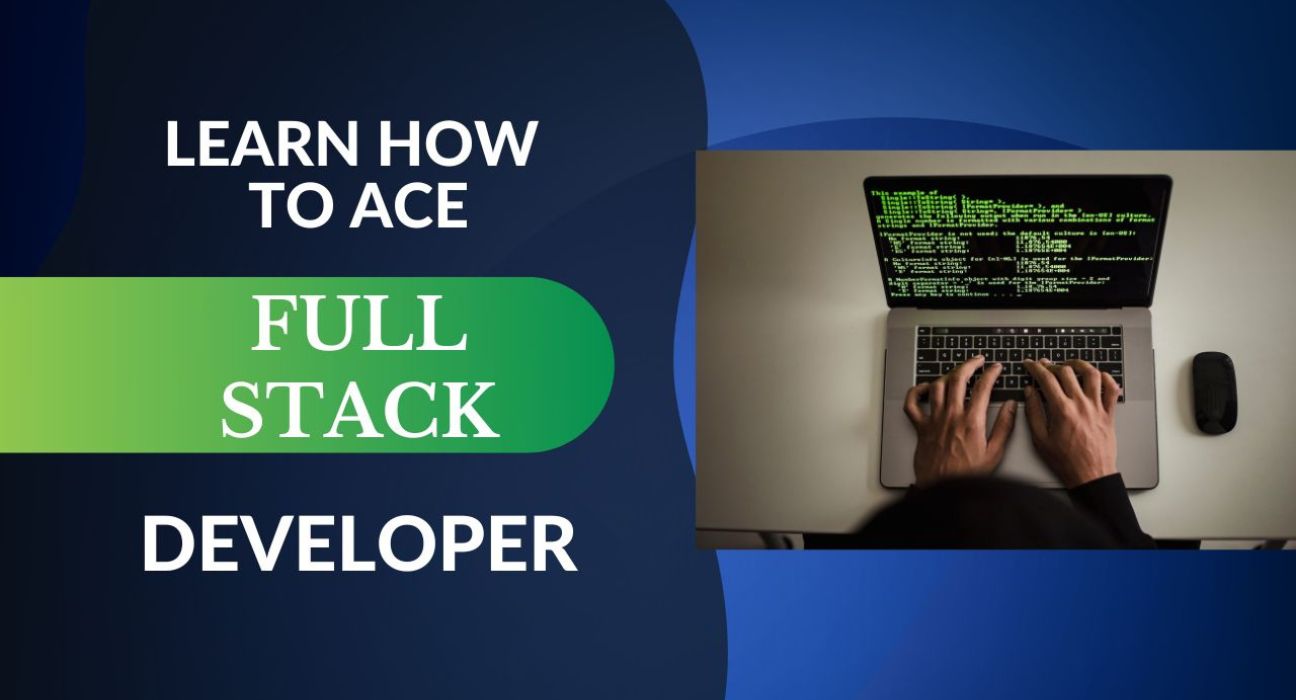Introduction to Full Stack Development
In today’s digital landscape, the need for skilled full stack developers is increasing rapidly. These professionals are adept at managing both frontend and backend aspects of web development, making them indispensable to any tech team. With the ability to oversee entire web projects, full stack developers ensure both smooth user interactions and robust server functionalities. This dual expertise not only broadens their career opportunities but also enhances their problem-solving capabilities, as they understand the complete lifecycle of web applications. Full stack development requires a balanced knowledge of various technologies, and staying current with industry trends is crucial. Whether working on user interfaces or server logic, these developers play a pivotal role in delivering comprehensive and efficient web solutions.
Core Frontend Technologies
To kick off your journey as a full stack developer, a strong foundation in core frontend technologies is essential. Start with the basics of HTML, CSS, and JavaScript, as these are the building blocks of any web page. HTML provides the structure, CSS handles the styling, and JavaScript adds interactivity. Once you’re comfortable with these, it’s time to explore popular frameworks like React and Angular. These frameworks help streamline development processes and improve code maintainability, crucial for handling complex web applications.
Basics of Backend Development
Backend development is where the essential functionalities of a web application come to life. A strong grasp of server-side languages such as Node.js and Python is fundamental. Node.js enables JavaScript usage on the server, facilitating a unified language across both frontend and backend, while Python is prized for its clarity and versatility. Alongside server-side languages, proficiency in databases is indispensable. SQL databases like MySQL and PostgreSQL are structured and highly reliable, whereas NoSQL options such as MongoDB offer flexibility in handling unstructured data. Understanding the pros and cons of each will allow you to choose the right tool for your project needs.
In addition to languages and databases, familiarity with server architecture and web frameworks is critical. Frameworks like Express for Node.js or Django for Python simplify the development process by providing robust tools and libraries. They offer built-in functionalities for tasks like routing, authentication, and data validation, enabling developers to focus on crafting unique features.
Security is another vital aspect of backend development. Knowing how to protect against common vulnerabilities like SQL injection, cross-site scripting (XSS), and cross-site request forgery (CSRF) is crucial. Implementing best practices such as input validation, using prepared statements, and secure authentication methods will safeguard your applications.
API design is equally important, as it dictates how different software components interact. Mastering RESTful principles and understanding GraphQL can enhance your capability to build efficient, scalable APIs. Testing is integral, too, with tools like Postman and automated testing frameworks ensuring that your backend remains robust and reliable.
Mastering DevOps Instruments
DevOps practices bridge the gap between development and operations teams, ensuring seamless and efficient software delivery. To become proficient in DevOps, start by familiarising yourself with essential tools such as Docker and Kubernetes. Docker facilitates the containerisation of applications, making them portable and consistent across various environments. Kubernetes complements Docker by orchestrating these containers, ensuring scalability, load balancing, and high availability. Additionally, understanding Continuous Integration/Continuous Deployment (CI/CD) pipelines is vital. CI/CD pipelines automate the process of integrating code changes, testing, and deploying applications, thereby reducing manual errors and speeding up release cycles.
Tools like Jenkins, Travis CI, and CircleCI are popular choices for implementing CI/CD workflows. Learning how to configure and use these tools will streamline your development process and enhance your productivity. Monitoring and logging are also crucial aspects of DevOps. Tools like Prometheus for monitoring and ELK Stack (Elasticsearch, Logstash, Kibana) for logging provide valuable insights into system performance and help in identifying issues before they escalate. Configuration management tools such as Ansible, Puppet, and Chef enable automated management of infrastructure, ensuring consistency and reducing the chances of human error.
Finally, understanding the principles of Infrastructure as Code (IaC) with tools like Terraform can further enhance your capabilities. IaC allows you to define and manage infrastructure using code, making it easier to provision, update, and version control your environment. Mastering these DevOps instruments will significantly improve your ability to deliver reliable and scalable applications.
Version Control Systems
In the realm of full stack development, version control systems are indispensable for managing and tracking code changes efficiently. Git is a fundamental tool that allows developers to record the history of their projects, manage different versions, and collaborate seamlessly with others. Understanding basic Git commands such as `commit`, `branch`, `merge`, and `pull` is essential for any developer.
GitHub serves as a hosting platform for Git repositories, providing a collaborative environment where developers can share code, contribute to open-source projects, and review each other’s work. It also offers features like pull requests and issue tracking, which streamline the workflow of development teams.
To get started, you should familiarise yourself with creating and cloning repositories, making commits, branching, and merging changes. Additionally, learning about pull requests and code reviews can help you participate effectively in team projects. Tools like GitKraken and SourceTree can provide a graphical interface for those who prefer a visual approach to version control.
Mastering version control not only helps in maintaining a clean and organised codebase but also facilitates better collaboration and productivity within development teams. By keeping track of every modification made to the code, version control systems ensure that you can always revert to a previous state if something goes wrong, making the development process more robust and reliable.
Key Soft Skills
As a full stack developer, possessing strong soft skills can be as crucial as technical expertise. Effective communication is vital; articulating complex ideas clearly to team members, clients, or stakeholders ensures projects run smoothly and efficiently. Teamwork goes hand-in-hand with communication, as collaborative efforts often lead to innovative solutions and successful project outcomes. Problem-solving is another indispensable skill. The ability to quickly diagnose issues and devise efficient solutions can set you apart in the fast-paced tech environment. Adaptability is equally important, given the rapid evolution of technologies. Being open to learning new tools and approaches can help you stay ahead of the curve. Time management is critical too; juggling multiple tasks and meeting deadlines requires meticulous planning and prioritisation. Lastly, emotional intelligence can enhance workplace relationships and foster a positive, productive environment. Understanding and managing your emotions, as well as empathising with colleagues, can lead to more effective teamwork and conflict resolution. Developing these key soft skills will not only complement your technical abilities but also elevate your overall performance as a full stack developer.
Crafting a Full Stack Portfolio
Creating a personal portfolio website is a brilliant way to showcase your skills as a full stack developer. Highlight your proficiency in both frontend and backend technologies through diverse projects that demonstrate your versatility. Each project should clearly outline the technologies used and the specific challenges you overcame, offering potential employers a comprehensive view of your capabilities.
Beyond your website, leverage platforms like GitHub to display your code repositories. Providing detailed README files and thorough documentation for your projects can enhance their visibility and usability. This also offers a platform for collaboration, allowing other developers to fork, contribute, and provide feedback, thereby enriching your learning experience.
Incorporate a blog section in your portfolio to share insights, tutorials, or experiences related to full stack development. This not only demonstrates your expertise but also your willingness to contribute to the developer community. Including testimonials or recommendations from colleagues and clients can add credibility to your portfolio, showcasing your teamwork and professional relationships.
Don’t forget to include links to your professional profiles on platforms such as LinkedIn and Stack Overflow. These profiles can provide a fuller picture of your engagement with the tech community and your professional journey. A well-crafted portfolio is a dynamic tool that evolves with your career, reflecting your growth, learning, and achievements in the ever-changing landscape of full stack development.
Lifelong Learning and Adaptation
In the dynamic field of full stack development, continuous learning is paramount. As technologies evolve, staying current ensures your skills remain in demand. Regularly updating your knowledge through online courses, workshops, and tech conferences can give you a competitive edge. Subscribing to industry blogs and following thought leaders on social media can provide insights into emerging trends and best practices. Engaging in open-source projects and contributing to online forums not only sharpens your skills but also connects you with the broader developer community. Additionally, earning relevant certifications can validate your expertise and enhance your professional credibility. Adopting a mindset of lifelong learning will empower you to adapt to new tools and methodologies swiftly, ensuring your career remains resilient and future-proof in the ever-changing tech landscape.








Leave feedback about this